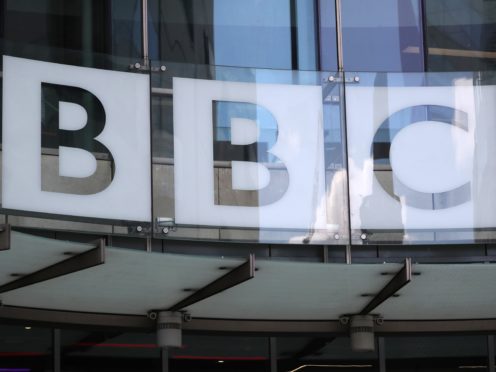The BBC should do more for those affected by the decision to scrap free TV licences, the Culture Secretary has said.
Nicky Morgan told the Commons she was “very disappointed” with the decision and said she has held talks with senior figures at the corporation.
In June the BBC announced that up to 3.7 million pensioners in the UK would no longer receive a free licence.
Under the new rules, only low-income households where one person receives the pension credit benefit will still be eligible for a free licence.
Mrs Morgan said: “The Government is very disappointed with the BBC’s decision on the future of the TV licence concession. We know that older people in particular value television as a source of companionship, entertainment and a way to stay connected with the world.
“I’ve met with the chairman of the BBC board and the director general of the BBC and I’ve asked them to do more for those affected by the decision.”
Labour MP Rachael Maskell (York Central) called for the promise of free TV licences for all to be honoured, with the Conservative Party having pledged to maintain free licences in their 2017 manifesto.
Ms Maskell said: “Promises matter, but when you’re elderly, when you’re lonely, when you’re housebound, you’re not interested in squabbling in this place, you’re not interested in excuses, you want that promise honoured and your free TV licence.
“Can the Secretary of State say why she made a promise at the election, why she’s letting older people down across the country, and what she’s going to do about it?”

Mrs Morgan replied: “Well of course it’s not a promise that I made because I’ve only taken this job in July, but she’s right to say there was a commitment.
“There was also an agreement with the BBC in the 2015 funding settlement. We committed to increase the licence fee in line with inflation, and closing the iPlayer loophole.
“But she’s right to say that actually people aren’t interested in squabbling in this place, whether it’s about TV licences or anything else indeed.
“If older people are entitled to pension credit then they will get the help they need, and as I say, the BBC will also be working to ensure others are aware of that entitlement and other support available.”
Many opposition MPs raised concerns about the effect removing free TV licences could have on levels of loneliness.
Labour MP Liz Twist (Blaydon) asked Mrs Morgan: “Does the Secretary of State agree with me that you can’t means test for isolation?”
Mrs Morgan replied: “We know that there are people who are not claiming the pension credit and they would be entitled and would fall into the categories she’s mentioned. I hope that she, like me, as a local MP, will work with all local agencies to ensure that everyone who’s entitled to that support gets it.”
Additional concerns were raised about the policy change potentially resulting in more fraudulent activity targeting elderly people.
This is the latest version of a scam email we are seeing a lot of today. Please be aware this is NOT GENUINE. Our emails will include your name. Please don't be fooled by these! pic.twitter.com/X5UHWakwjC
— TV Licensing (@tvlicensing) September 26, 2019
Labour MP Jeff Smith (Manchester, Withington) said: “Age UK have warned that the changes to eligibility for TV licences is likely to result in a big increase in fraudulent activity that targets vulnerable elderly people.
“Isn’t that yet one more reason why the Government should stop outsourcing its social policy and commit to keeping TV licences free for all over-75s?”
Ms Morgan replied: “The BBC has provided assurances that it will deliver the most sensitive possible handling for those, obviously, who are affected, and we will work with older people’s groups, charities, voluntary organisations, to design a bespoke system to support all those over 75, including new easy payment plans, and information and advice programmes.
“We want everyone who is eligible for pension credit to make sure that they are claiming it in order to get the benefit of the TV licence.”
In 2015, the Government announced the BBC would take over the cost of providing free licences for over-75s by 2020 as part of the fee settlement.
In making the decision to remove free TV licences for all, the BBC said the current scheme would have cost £745 million, a fifth of their budget, by 2021/22.
The corporation said the new scheme will cost around £250 million by 2021/22, depending on take-up.
Funding free TV licences for all over-75s would have resulted in “unprecedented closures”, the BBC said, adding that “fairness” was at the heart of the decision to change the policy.
